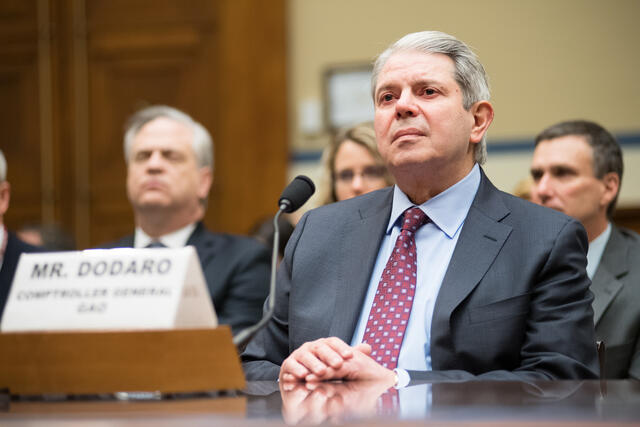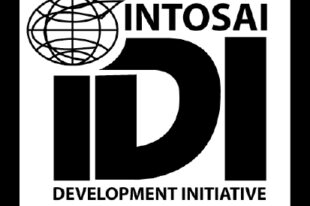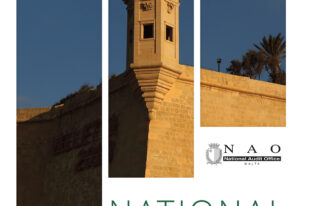Engaging with Civil Society Enables High Quality Audits in Critical Times: Perspectives from the U.S. GAO

Author: Gene L. Dodaro, Comptroller General of the U.S. GAO

In recent years, Supreme Audit Institutions (SAIs) have increasingly seen the value in engaging with civil society as a way to enhance government accountability and the quality of their audits. While we regularly engage with civil society during the normal course of our work, at no time has this been more important than during global emergencies, such as the COVID-19 pandemic that we all have experienced for going on three years.
GAO has an important role to monitor the U.S. federal government’s response to COVID-19. Since the beginning of the pandemic, our government has authorized $4.6 trillion in emergency spending across numerous federal agencies and sectors of our society. From March 1, 2020 to August 5, 2022, GAO issued 174 related products, providing real time oversight of these funds.
As of September 30, 2022, GAO has made 368 total recommendations for improving federal pandemic operations. These recommendations include improvements in such areas as publicly reporting COVID-19 nursing home vaccination data and targeting vaccine outreach to veterans. Agencies have fully or partially addressed 37 percent of these recommendations as of September 2022. More specifically, agencies have fully addressed 26 percent (94 recommendations) and partially addressed another 11 percent (42 recommendations) of recommendations.
In conducting this work, we interviewed and gathered information from numerous civil society organizations and the public to obtain first-hand knowledge about programs, participants, and outcomes. We have also recommended ways to improve services for key members of society that are among the hardest hit by the pandemic. These include the elderly, military veterans, children, those living in poverty, the mentally ill, health care workers and institutions, and individuals facing disruptions in income.
For our pandemic-related reports, we have interviewed:
- National organizations that represent nursing homes, residents, and their families, along with researchers specializing in nursing home infection control to identify ways to improve nursing home conditions;
- Officials representing the national association of state-level veterans’ homes in order to recommend improvements for inspections of veterans facilities;
- Organizations that advocate for K-12 English Language Learner (ELL) students, as well as for students with disabilities, who engaged in distance learning during the pandemic. This included associations of educators, school administrators, and special education administrators to assess the status of distance learning for these communities;
- Representatives from national organizations that conduct child welfare-related advocacy, training, and research to assess challenges faced by child welfare agencies during the pandemic;
- Public health experts and stakeholder groups representing over 100,000 state and local public health officials; national, regional, community, and health system labs; school administrators; and nursing home staff, physicians, and nurses in our review of COVID testing guidelines;
- Public health interest groups, nutrition assistance organizations, and food distributors to understand implications of the pandemic on nutrition assistance programs;
- Organizations representing behavioral health service providers to assess the impact of the pandemic on behavioral health implications. We also reviewed data from a survey of households and information on calls from citizens to distress hotlines; and
- Government outreach partners representing retired individuals, nutrition advocacy organizations, coalitions of charitable organizations, and a low-income housing advocacy organizations to recommend improvements in economic impact payments to individuals.
GAO also engages external stakeholders in ensuring accountability by enabling these parties to report suspected fraud, waste, or abuse of government resources to a hotline. For example, in fiscal year 2022, we received 607 complaints on Fraudnet specifically on COVID-19 emergency funding.
Based on these experiences during the COVID-19 pandemic, we continue to further engage civil society in the rest of our work. We have a formal process in our audits for identifying relevant stakeholders, including civil society organizations, who can provide a diverse range of views that offer important context as we frame and conduct our engagements.
Among other things, we make all of our non-classified reports, as well as the database of open recommendations, available on our public website. We meet with and engage several advisory boards, as well as GAO’s Center for Strategic Foresight (CSF) where we receive high-level input from a range of outside experts. They provide important insights on the full range of developments across key segments of society including academia, think tanks, nonprofits, and the public and private sectors.
I appreciate the opportunity to share our perspectives and experience on the importance of engaging with civil society to enhance audits during national and global emergencies, like the COVID-19 pandemic. Collaborating with a broad range of civil society groups and important stakeholders has helped us achieve our mission of improving federal government performance, and helping ensure public sector accountability. We look forward to continue sharing knowledge and other practices with the INTOSAI community.





